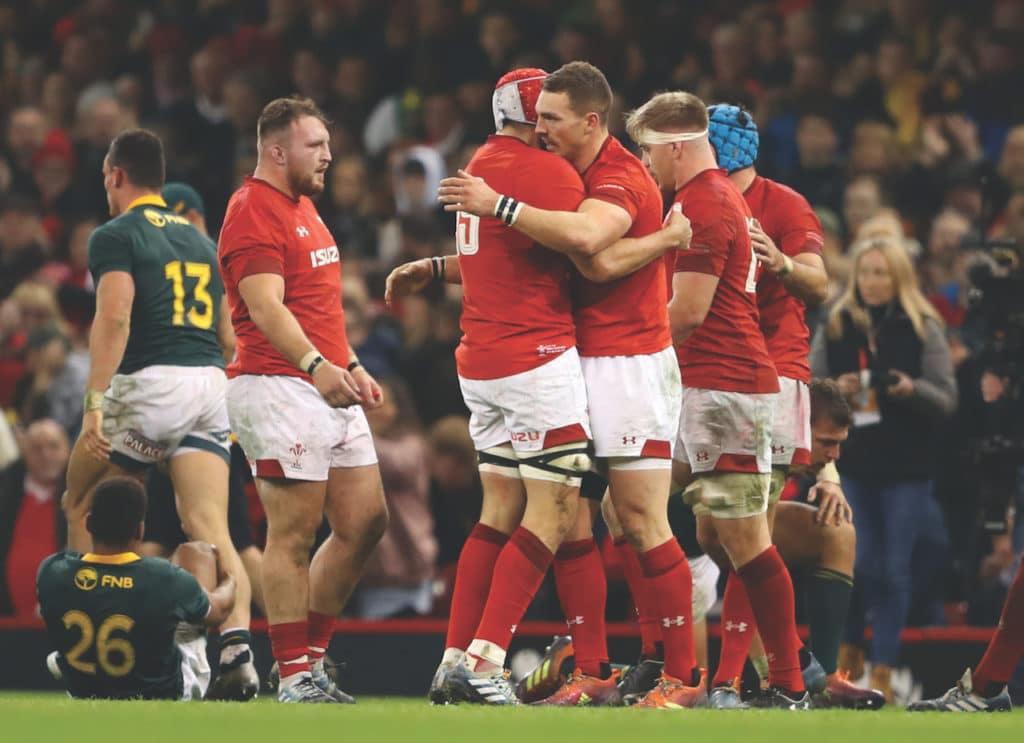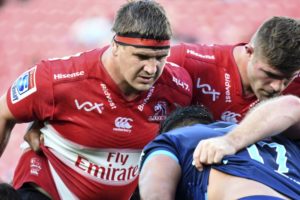The Springboks will head into World Cup clashes against the top European teams as underdogs, writes JON CARDINELLI.
Most didn’t believe Rassie Erasmus at the beginning of 2018 when he identified Ireland as one of the biggest threats to New Zealand’s dominance. Erasmus had spent some time with Munster and had gained an intimate understanding of the Irish rugby set-up. He was well placed to comment on the tactics and structures that warranted comparisons with the world-leading New Zealand Rugby Union.
The 2018 Test season is now a thing of the past, and it’s fair to say that Ireland – as well as some of the other top northern hemisphere nations – have challenged the status quo. After thrashing the Springboks 38-3 in November 2017, Ireland went on to win the Grand Slam in the 2018 Six Nations. They claimed a historic series win in Australia and then affirmed their status as the world’s form side when they beat the All Blacks convincingly in November. It should have come as no surprise to see Ireland walking away with World Rugby’s Team, Player and Coach of the Year awards.
The Springboks will have more than two teams to worry about when they travel to Japan, though. Indeed, England and Wales have picked up some valuable wins against the Boks since the last World Cup, and will have reason to feel confident should they meet South Africa again in Japan. The 2019 showpiece promises to be the most fiercely contested World Cup yet.
The Springboks may feel that they proved a point after recording a drought-ending win in Wellington and subsequently a narrow loss in Pretoria. They still have what it takes to mix it with the world’s No 1 side. After the 2018 results, one is reluctant to write them off completely ahead of the Pool B showdown with the All Blacks in Japan in September.
That said, they will go into that fixture in Yokohama as underdogs. And if the Springboks lose to the All Blacks and finish second in their pool, they will in all likelihood meet Ireland in the quarter-finals.
Earlier this year, Erasmus identified New Zealand rugby’s strengths and admitted that South Africa had a lot of catching-up to do. When he spoke about Ireland’s improvements in the Six Nations, it was as if he was talking about a Kiwi team.
Coach Joe Schmidt, who hails from New Zealand, has developed an Ireland team that can beat the best sides at the breakdown and in the air. It’s in the latter discipline – in terms of kicking accuracy and aerial contesting – where New Zealand and Ireland are currently a class apart.
The Springboks, under Erasmus, are still trying to catch up. They were outplayed in these areas when they toured the northern hemisphere recently. England and Wales in particular succeeded in pressuring them through a well-executed kick-chase.
Overall, the results achieved last November, and indeed since the start of this World Cup cycle, confirm that the northern hemisphere sides have improved a great deal. Australia have lost six Tests in a row to England and have lost home and away to Scotland. They recently lost to Wales for the first time since 2008. They may very well lose to Wales again when the sides meet during the World Cup pool phase. One wouldn’t bet on them beating England in a potential quarter-final.
The Boks’ struggles against the northern sides during this period are well documented. They’ve lost more than they’ve won against England since 2016. Of more concern is their record against Wales. The Boks have lost four in a row to the Dragons since the last World Cup. Why does that matter in the context of the next global tournament? Even if the Boks defy the odds and beat the All Blacks in the pool fixture, they could meet England, Wales or Ireland in the playoffs.
The northern hemisphere’s rise has been good for the game. The onus is now on the southern heavyweights to respond. The All Blacks will be anything but complacent after losing to the Springboks and Ireland in 2018, and we should expect a substantial backlash in 2019.
The Wallabies and Springboks, however, have a lot to rectify in the lead-up to that tournament. They will go into matches against Ireland, England and Wales as underdogs, and it wouldn’t surprise to see two or three northern nations advancing to the semi-finals.
Photo: Warren Little/Getty Images





